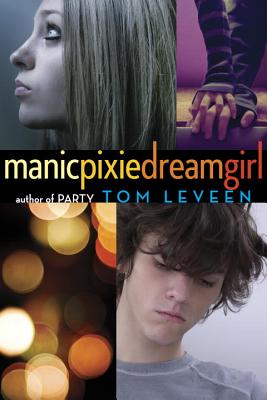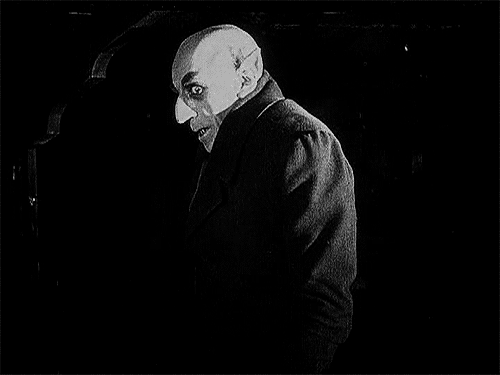Meet the Writer - Tom Leveen
Yes. I just compared up-and-coming YA author Tom Leveen to the Martin Scorsese of 80's teen angst: John Hughes.
An author interview on the craft of writing.
Featured Writer: Tom Leveen
Book: manicpixiedreamgirl, Contemporary YA
In celebration of Tom's latest book, and because I LOVE MY READERS :D I am giving away a signed copy of manicpixiedreamgirl! Read on, and enter for your chance!!I said it when I read Party, Tom Leveen's debut novel, and I'll say it again: I will be very very shocked if we don't see a TV or movie adaptation of his work sometime in the near future. While Party could easily be adapted into an MTV series (each of eleven chapters is told from a different character's point-of-view, all on the same night - at a high school party), and Zero has an indie-film feel, manicpixiedreamgirl is like today's version of a John Hughes film.Yes. I just compared up-and-coming YA author Tom Leveen to the Martin Scorsese of 80's teen angst.And it's apropos, considering, in Tom's own description of himself freshman year, he had "that whole John Bender thing going," or at least that's the look he was going for at the time. But as all of us former freshmen know, the look you want to have is much further from the persona you actually project. We want to be badass, confident and sexy; when in actuality we are awkward, nerdy, and to most of the world, still "kids."In manicpixiedreamgirl's Tyler—loosely biographical—Tom captures these feelings to a T. Internally, the rush of what you wish was your reality, all the hopes, dreams, and feelings flowing like a fast-moving river; the image of yourself looking fabulous, walking up to your crush and reciting some impressive commentary on Whatever Is Relevant At The Time. But externally, you can barely look them in the eye, and what you really say—the still-puddle of one-syllable responses: "yup," "nope," "uh..." John Bender reduced to Brian Johnson.I first introduced you to Tom in this guest post for Will Write for Coffee. When I met him, Tom had just released his first book, Party, and gave a presentation at our regional SCBWI conference. I had loaned out my copy of Party to a friend, and had stupidly forgotten my wallet in my other purse and wasn't able to buy a copy at the conference. Being a geek, I like to have signed copies from authors I've met. I asked Tom if I could order a signed copy online. He did the absolute coolest thing right then and there—checked to make sure no one was looking, held his finger in a "shh," and slipped me a copy from his messenger bag, which I then sheepishly brought to the autograph table about 10 minutes later. He's been a rock star in my mind since.Even better, after I'd asked him to do this interview, he was scheduled to appear at out local Indie, Changing Hands Bookstore, for the release of manicpixiedreamgirl. I dragged my 15-year-old son and his friend along, and listened to them complain all the way about how boring it would be. I had to bribe them with Jamba Juice just to go with me. (Really, five bucks for a fruit shake?) I forced my son to actually sit down with me during the presentation, rather than let him wander around the store wreaking havoc. What a heinous mother I am.About two seconds into Tom's presentation, my son and his friend were laughing hysterically, and I was laughing so hard I was crying. He is so animated and enthusiastic about what he does, and grateful for his ability to do it, it's infectious. And by the time he's done relating Tyler's story to his own evolution, you are pretty much just as in love with his wife Joy as he is. Seriously, if your school or organization is thinking of an author visit - don't even look anywhere else - Tom will entertain and motivate like none other. And if Tom isn't enough, his son Toby will definitely do the trick.It's an honor and a privilege to introduce you.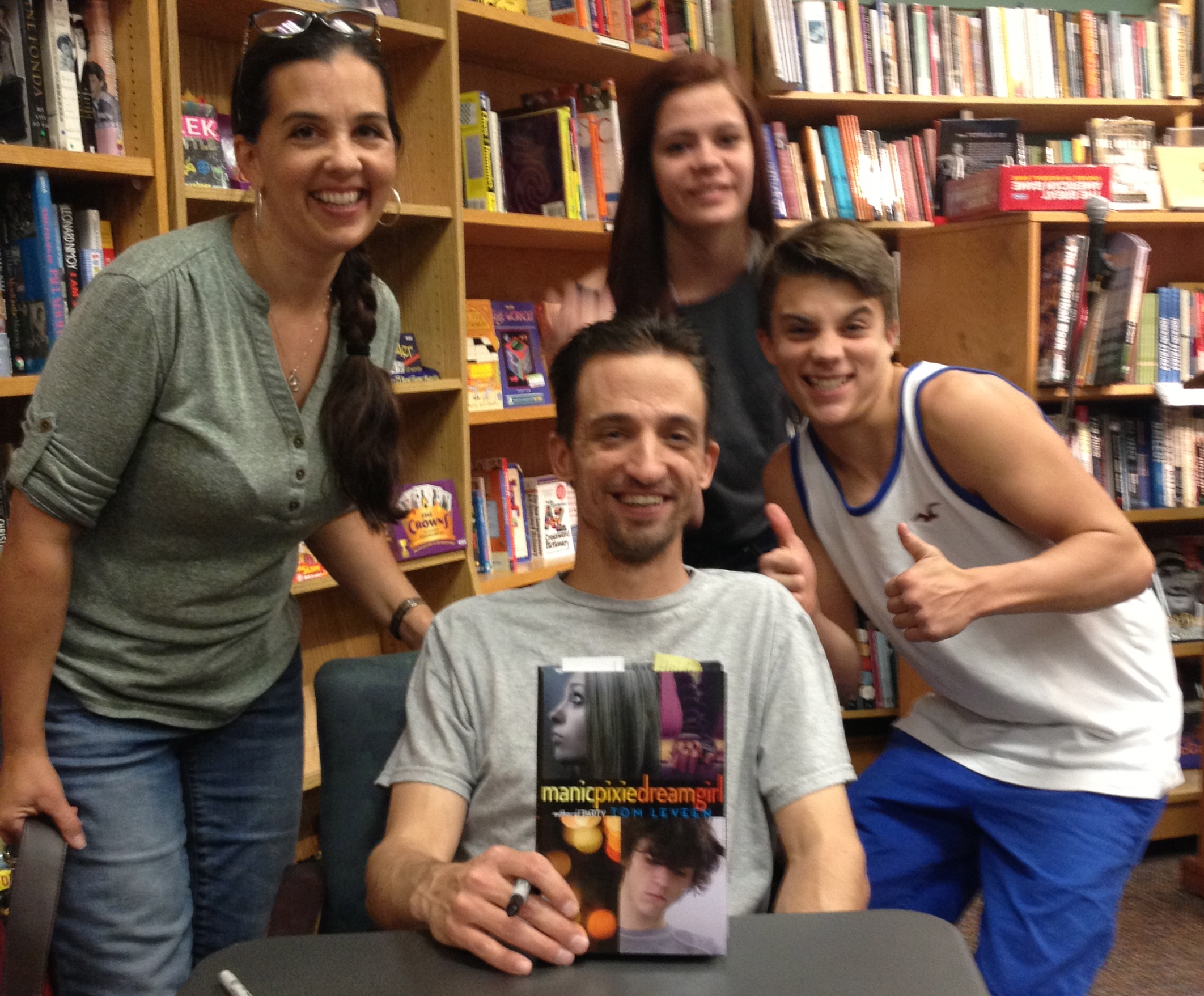
Meet the Writer: Tom Leveen
On craft:
How old were you when you started writing?I wrote my first story in second grade, so, about seven years old I think. My teacher made me rewrite it and read it aloud to the first graders. At first I thought I was being punished for something, but once I got up in front of the class, I knew I wanted to do this for the rest of my life: tell stories and be in front of an audience. So that’s worked out well.Where do you write?I write in an indie coffee shop not far from my house, and also in my home office.
When do you write?New stuff—brand new, no revision-type stuff—I generally do in the mornings. I used to stay up all night and write, and I miss doing that, but having a toddler has that effect. I use afternoons and evenings to do editing or revision, as well as other business stuff. Like answering interview questions!What helps you write—music, pictures, maps, journals, etc.—what gets you into that mindset?A routine.I recommend this to all writers. If you can get into a pattern, your brain starts to make associations. Like at my coffee shop, there’s a certain table and certain chair I always use, and within a few minutes of being there and getting set up, I can feel my brain (usually) start to click over to the job at hand, which is continuing that day’s story.Beyond that, internet research helps me a lot. The more I dig into a topic and click around on websites, the more ideas I get. I do usually make playlists for my stories, too, but I don’t listen to music while I write anymore. Sometimes when I’m making copyedits, but that’s it.What are some things that stand in your way? logistically as well as creatively?See above!No, really, the internet is without doubt the writer’s best friend, apart from time. But it’s also a curse, because man, you start off with just needing to know some quick obscure fact, like the capital of Guam, and then an hour’s gone by and you haven’t written a word. And by “you” I mean “me,” of course.Creatively what makes me stumble is doubt coupled with certainty. For whatever reason, the stuff that I feel most excited about turns out to be my worst writing, and the stuff I’m sure sucks is inevitably what my agent picks up on and wants to read more of. So it gets very confusing in my head sometimes.What do you do when you "hit a wall?"It depends. I’ve gotten better at being honest with myself and how I’m feeling, be it physical or mental. There are some days like, “You know what? This ain’t gettin’ done. It’s just not happening.” When I feel like that, then I pack it in and do something else for the rest of the day, and try again tomorrow. Then there are other times I hit a wall, but I can still feel like the words are there, the story is there; I just have to figure it out. In those cases, a walk helps. Pacing around the house. Talking out loud. Anything to let my mind wander for a bit. Usually within ten to thirty minutes the dam breaks.Beyond that, I will often just open a new story and start something new or work on something old. Let my subconscious figure it out. Do you use an outline—do you know exactly how the arc will play out—or do you just let the story develop as you write? If so, how do you outline? (notecards, etc.)Hm…good question. I guess both.What tends to happen, lately, is I free write a first draft, or at least half a first draft, and then go back and give it an outline. Sometimes I’ll use the Hero’s Journey as a template, not necessarily point by point, but just to see if there is in fact, you know—a plot. (There isn’t always, especially in that first draft.) My outlines usually just consist of a Word doc with notes (often longer than the book itself, it turns out), and sometimes an Excel doc so I can move things around and keep the plot points, character names and locations, etc., organized.In terms of the arc, I don’t usually know exactly how things will turn out, though on some stories, I discover the ending about halfway through the writing. Zero’s ending has been the same since the first draft in 1993. For manicpixiedreamgirl, I knew most of where I wanted it to end up. But with Party – which went through more drafts than the other two – I never did know for sure how to tie it up until just before we pitched it.How do you draft/revise? (i.e. do you just get it out in one big "dump," then revise, revise revise, or do you revise and edit as you go)I try hard to get the first draft out all in one go. Usually what happens is I’ll do a bit of revision as go, though. If I stop to revise too much, the book never gets done. And there’s no point in revising a story that had no middle or end. I think I’ve gotten better about completing those first drafts. They are awful, but that’s what first drafts are for!What are some tools that you use? (reference guides, manuals, websites—a favorite pen/notebook/computer)Well, I use the internet pretty extensively for research, whether it’s just a quick fact check or more in-depth. I often use videos, too—documentaries, usually, or travelogues. I do all of my composing on my desktop and an obsolete netbook. Come to think of it, the desktop is obsolete too, but I can’t stomach the newer versions of Word. I want my old 2003 version, thanks.Lately I’ve also appreciated using a handheld recorder or the sound recording option on my cell phone to speak quick notes or lines of dialogue before I forget them. That’s been hugely helpful.Beyond that, I don’t really have anything special to use while writing. I don’t think…Do you use critique groups? How did you find them?I do not, at the moment, but I did before I was published. I highly recommend the forums at www.absolutewrite.com, without whom I would never have gotten my first agent. No question.I haven’t really had a formal critique group since college. I think there is value in them, but I also thing aspiring writers need to know what to look for—namely, people (or just one or two good beta readers) who will not only be honest, but know what to be honest about.I’ve taken some creative writing classes that I really enjoyed attending, for instance, but in hindsight realized: I didn’t learn a damn thing! The feedback was nice and encouraging, and I made a few changes that helped the story…but a bunch of people saying “I liked this; I didn’t like this” is not the same as a knowledgeable person saying, “Your pacing is too slow in chapter two. Your secondary characters are flat and uninteresting. The plot is too convoluted. Cut chapter four entirely.” Things like that. Concrete ideas and suggestions that turn a decent book into a marketable book.I don’t know how to find those. But if anyone in the group has published, that helps. But the real hard part is listening to criticism and knowing when the criticism is right. I always recommend checking local libraries and indie bookstores for groups.
Do you use an outline—do you know exactly how the arc will play out—or do you just let the story develop as you write? If so, how do you outline? (notecards, etc.)Hm…good question. I guess both.What tends to happen, lately, is I free write a first draft, or at least half a first draft, and then go back and give it an outline. Sometimes I’ll use the Hero’s Journey as a template, not necessarily point by point, but just to see if there is in fact, you know—a plot. (There isn’t always, especially in that first draft.) My outlines usually just consist of a Word doc with notes (often longer than the book itself, it turns out), and sometimes an Excel doc so I can move things around and keep the plot points, character names and locations, etc., organized.In terms of the arc, I don’t usually know exactly how things will turn out, though on some stories, I discover the ending about halfway through the writing. Zero’s ending has been the same since the first draft in 1993. For manicpixiedreamgirl, I knew most of where I wanted it to end up. But with Party – which went through more drafts than the other two – I never did know for sure how to tie it up until just before we pitched it.How do you draft/revise? (i.e. do you just get it out in one big "dump," then revise, revise revise, or do you revise and edit as you go)I try hard to get the first draft out all in one go. Usually what happens is I’ll do a bit of revision as go, though. If I stop to revise too much, the book never gets done. And there’s no point in revising a story that had no middle or end. I think I’ve gotten better about completing those first drafts. They are awful, but that’s what first drafts are for!What are some tools that you use? (reference guides, manuals, websites—a favorite pen/notebook/computer)Well, I use the internet pretty extensively for research, whether it’s just a quick fact check or more in-depth. I often use videos, too—documentaries, usually, or travelogues. I do all of my composing on my desktop and an obsolete netbook. Come to think of it, the desktop is obsolete too, but I can’t stomach the newer versions of Word. I want my old 2003 version, thanks.Lately I’ve also appreciated using a handheld recorder or the sound recording option on my cell phone to speak quick notes or lines of dialogue before I forget them. That’s been hugely helpful.Beyond that, I don’t really have anything special to use while writing. I don’t think…Do you use critique groups? How did you find them?I do not, at the moment, but I did before I was published. I highly recommend the forums at www.absolutewrite.com, without whom I would never have gotten my first agent. No question.I haven’t really had a formal critique group since college. I think there is value in them, but I also thing aspiring writers need to know what to look for—namely, people (or just one or two good beta readers) who will not only be honest, but know what to be honest about.I’ve taken some creative writing classes that I really enjoyed attending, for instance, but in hindsight realized: I didn’t learn a damn thing! The feedback was nice and encouraging, and I made a few changes that helped the story…but a bunch of people saying “I liked this; I didn’t like this” is not the same as a knowledgeable person saying, “Your pacing is too slow in chapter two. Your secondary characters are flat and uninteresting. The plot is too convoluted. Cut chapter four entirely.” Things like that. Concrete ideas and suggestions that turn a decent book into a marketable book.I don’t know how to find those. But if anyone in the group has published, that helps. But the real hard part is listening to criticism and knowing when the criticism is right. I always recommend checking local libraries and indie bookstores for groups.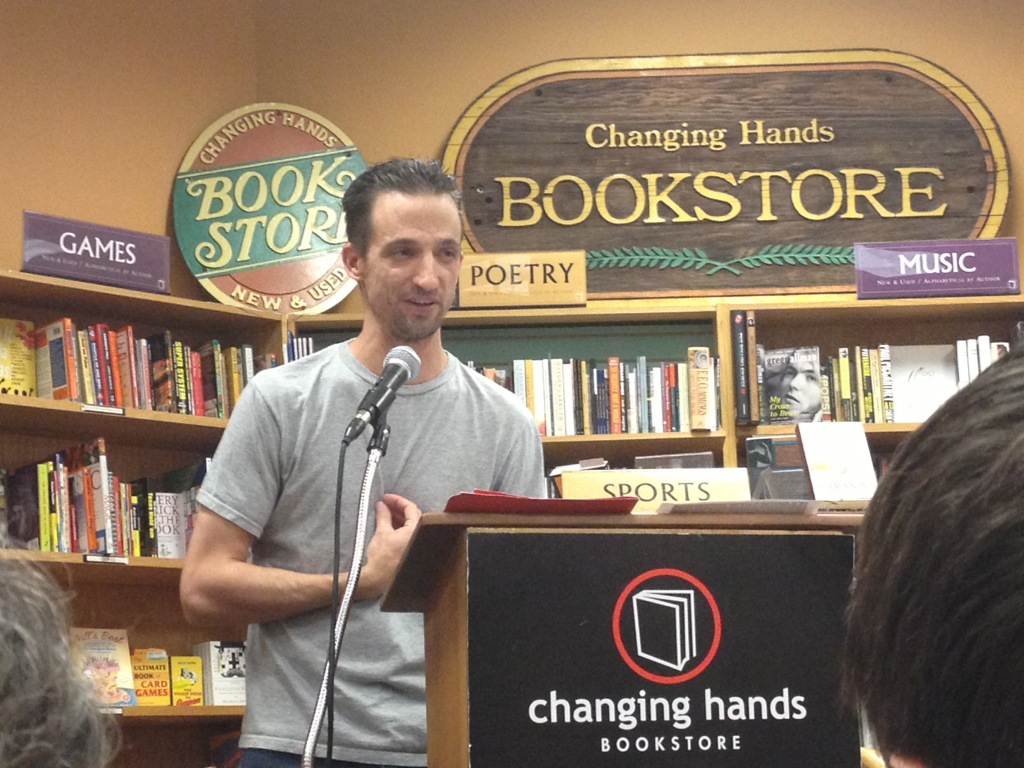
On your current project:
What was your inspiration for this book?Real life! Sort of.I actually already had an outline of manicpixiedreamgirl that formed the spine of a one-man play I wrote and directed a few years out of high school, which itself was loosely based on real events. But manicpixiedreamgirl is not autobiographical; it’s just emotionally true to what I experienced.What kind of research did you do for this book? And, were you surprised by something that you learned in your research?I didn’t need to do much research with manicpixiedreamgirl, because it dealt with writing and theatre, two things I know a lot about. And since the story already had a framework from the play, there wasn’t much to look into.On the other hand, for Sick (Oct. 1, 2013, Abrams/Amulet), I had to do a ton of medical research. Gross, disgusting medical research. I was surprised that my initial concept for the “zombies” in the novel (they are not undead, though the characters have a whole debate about that) was reasonably medically based, or at least could be.How good did it feel to write that last line?For manicpixiedreamgirl? Very good. Like closure. Much like Zero, this one had been with me a long time, and it was nice to put it to bed.
On the business of publishing:
How did you find your agent/editor?I used AgentQuery.com and resources on AbsoluteWrite. I may have even used a print version of Writer’s Market, come to think of it. I built an Excel sheet with the agency’s name, agent’s name, when I submitted, and what if any response I got. I got picked up after about forty rejections by Andrea Brown Literary Agency, and I’ve been there ever since. How has self-publishing shaped your career as a writer? / What is your opinion of self-publishing?I haven’t yet done it, so I can’t speak with any authority. I will underline the “yet,” though, as I am already in the early stages of planning some self-published work.My opinion of self-pub is this: One, it’s not going away. Two, to paraphrase Jeff Goldblum in Jurassic Park: “Writers can get so preoccupied with whether or not they could that they didn’t stop to think if they should.”I’m less of a doomsayer about traditional publishing and agents than some of my best writer friends, but there’s no doubt the industry has changed and will continue to change. But I will also say that my most valuable instruction came from my agents and editors. I always recommend that writers give the traditional route a try first, if only for the experience of revision (and revision and revision and revision…) that goes into a good, marketable novel. Being able to write a good query and condense that novel into 200 words or less is a good skill to have for someone going the indie route.I try to say this to every writing class I teach: Writing fiction is a business. And self-publishing is twice or more the work traditional publishing is because you’re doing it all alone. Yes, there are examples of big breakthroughs, but they are in the minority.My friend Erin Jade Lange (author of Butter) recently said at a conference, “You have to love writing more than showers.” She’s dead right. You have to love this more than just about anything else on earth to make a real go of it. The man-hours it takes to really, truly put out a great novel is daunting. Or should be, if you’re think about it enough. Finishing up your NaNoWriMo book and plugging it into Smashwords on December 1 is not how to do it.Sound advice to all the NaNos out there! What can you share with our readers about marketing? (i.e. what, if any, support did you have from your publisher? Costs involved? Things that worked best/weren't worth it, etc.)Ya know, this is my major weakness. I’m still learning. I think postcards are a great idea, I carry those around with me. Business cards are still useful. Having an online presence is essential, even if you don’t want one.Really the biggest thing was making ARCs and e-galleys available to the book bloggers out there. That’s where a lot of interest gets generated.But when it comes to MG and YA authors, there’s no beating getting yourself in front of students. You don’t need a gimmick or anything; just be yourself and talk about things that matter to you in a way that will matter to them. I think I sell about as many books based on my writing classes and presentations as I do what any journal has to say about the novel itself.(As I stated above, I can attest to Tom's presentation skills. Not only have I seen him talk about his books, but I've taken his "Say Words" writer's workshop. He helps writers portray realistic teen dialogue. And, the class that Tom had been working with at Estella Mountain HS came all the way across town just to celebrate his book release. Think he speaks to kids? Yeah.)
About You:
What is a trick that you've learned along the way that has made the writing process easier?None that I am aware of…Okay, no, just kidding. For me, (relative) silence and having a schedule. Those two things have helped more than anything else. Some authors call it “B.I.C.” which means, Butt In Chair. It means there’s no substitute for sitting down and writing. Now, I myself often stand while at my coffee shop, because they have these great, tall bar tables. But you get the drift. Even if the only time you can write is Thursday morning from five a.m. to seven a.m., then by cracky, that’s when you will write. And the more you do that, the easier it gets.What writers inspire you?The late John Bellairs (The Mummy, The Will, and The Crypt) influenced me a lot. So did early Stephen King stories and novels, and most of Robert Cormier’s books (The Chocolate War, etc.) I kind of want to be Laurie Halse Anderson when I grow up . . . or at least have the range of influence she does. I’d put A.S. King in there, too. These women are at the forefront of tangibly changing the lives of adolescents, and that’s what I want more than anything.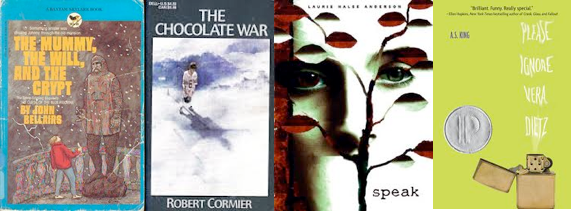 Really the writers who inspire me are the writers who I’ve become friends with since this whole thing started. There’s a whole clutch of YA and MG writers here in the Phoenix and wider Arizona area, and they are truly awesome people. I learn – present tense – a lot from them.What do you like to read for enjoyment?Lately I have been reading a lot of nonfiction. It started when a good friend of mine recommended the popular book Born To Run. I really enjoyed that. Then she recommended another that I fell in love with Animal Vegetable Miracle by Barbara Kingsolver. A third followed. So now anything she recommends to me, I will read.Then I began reading up on Gandhi while doing research, and that led to a whole list of must-reads. So these days, if I’m not re-reading some middle-grade novel from the eighties that I grew up with (kind of like comfort food, only, in words), I’m reading one or more nonfiction books on any number of topics.We all know that learning from our mistakes is part of the process of becoming who we are. As a writer, what's one lesson you've learned that you would like to pass on to others?Writing fiction is a business. Sorry to go all serious on you, but yeah – the instant you decide you want someone to pay you for writing fiction, you are a small business owner. Act like it.I'm so glad you said that. I think more writers need to realize that being an author is WAY MORE than writing a book.What's next for you?Next is Sick (Abrams/Amulet), which releases October 1, 2013. After that is Random (Simon Pulse) in Summer 2014. I’m getting some side projects worked up, slowly. Mostly I just keep looking for places to present and to teach. It’s the best part of all this.I can imagine. After seeing you speak several times, it shows that you really enjoy teaching others about writing, especially kids. Thank you so much, Tom! I hope everyone has learned more about what it takes to be a writer. Readers, see below for more of Tom's books, and a chance to win a signed hardcover copy of manicpixiedreamgirl!Tom's Books:
Really the writers who inspire me are the writers who I’ve become friends with since this whole thing started. There’s a whole clutch of YA and MG writers here in the Phoenix and wider Arizona area, and they are truly awesome people. I learn – present tense – a lot from them.What do you like to read for enjoyment?Lately I have been reading a lot of nonfiction. It started when a good friend of mine recommended the popular book Born To Run. I really enjoyed that. Then she recommended another that I fell in love with Animal Vegetable Miracle by Barbara Kingsolver. A third followed. So now anything she recommends to me, I will read.Then I began reading up on Gandhi while doing research, and that led to a whole list of must-reads. So these days, if I’m not re-reading some middle-grade novel from the eighties that I grew up with (kind of like comfort food, only, in words), I’m reading one or more nonfiction books on any number of topics.We all know that learning from our mistakes is part of the process of becoming who we are. As a writer, what's one lesson you've learned that you would like to pass on to others?Writing fiction is a business. Sorry to go all serious on you, but yeah – the instant you decide you want someone to pay you for writing fiction, you are a small business owner. Act like it.I'm so glad you said that. I think more writers need to realize that being an author is WAY MORE than writing a book.What's next for you?Next is Sick (Abrams/Amulet), which releases October 1, 2013. After that is Random (Simon Pulse) in Summer 2014. I’m getting some side projects worked up, slowly. Mostly I just keep looking for places to present and to teach. It’s the best part of all this.I can imagine. After seeing you speak several times, it shows that you really enjoy teaching others about writing, especially kids. Thank you so much, Tom! I hope everyone has learned more about what it takes to be a writer. Readers, see below for more of Tom's books, and a chance to win a signed hardcover copy of manicpixiedreamgirl!Tom's Books:
Party
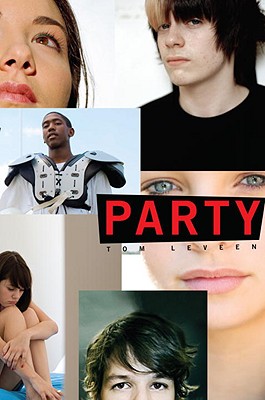
Zero
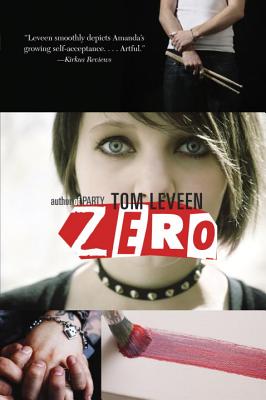
manicpixiedreamgirl
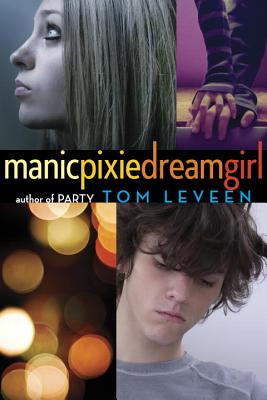 For a chance to win a signed hardcover copy of Tom's newest book, manicpixiedreamgirl, leave a comment about the interview, below! Winner will be chosen at random in one week and notified by email!! Good Luck!Tom's website: www.tomleveen.comTwitter: @tomleveenFacebook: Tom LeveenAnother great interview with Tom: Assembly on Literature for Adolescents of the NCTESee Tom at Phoenix ComiCon! Phoenix New Times review of MPDGLast but not least...What's the funniest thing you've seen online lately? The funniest thing was actually something I had to go back and look up not long ago: A piece from The Daily Show about the Navy SEALs who took out the pirates while on a boat.
For a chance to win a signed hardcover copy of Tom's newest book, manicpixiedreamgirl, leave a comment about the interview, below! Winner will be chosen at random in one week and notified by email!! Good Luck!Tom's website: www.tomleveen.comTwitter: @tomleveenFacebook: Tom LeveenAnother great interview with Tom: Assembly on Literature for Adolescents of the NCTESee Tom at Phoenix ComiCon! Phoenix New Times review of MPDGLast but not least...What's the funniest thing you've seen online lately? The funniest thing was actually something I had to go back and look up not long ago: A piece from The Daily Show about the Navy SEALs who took out the pirates while on a boat.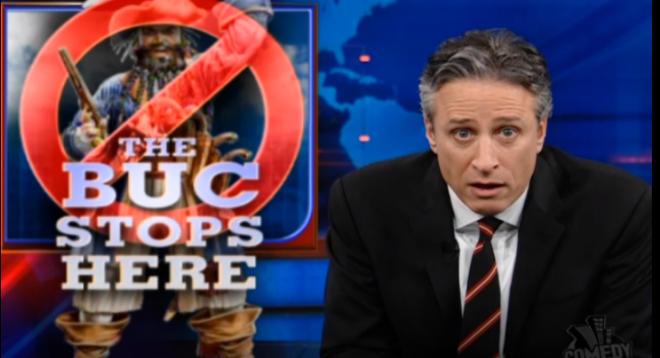 photo of Tom Leveen used by permission © John Groseclose www.photographybanned.comThanks for reading!Heidi
photo of Tom Leveen used by permission © John Groseclose www.photographybanned.comThanks for reading!Heidi
Bear with me
like your lives are so empty and meaningless without my mindless blathering...
So...thank you to my readers. It's been almost two months since my last post, and I can see by my stats that I still have readers, so, really - Thank You.
I have been working on my latest post for a while - it's a tough one, and not quite ready. But I felt I should at least check in with you and give you something. I don't know why...like your lives are so empty and meaningless with out my mindless blathering...
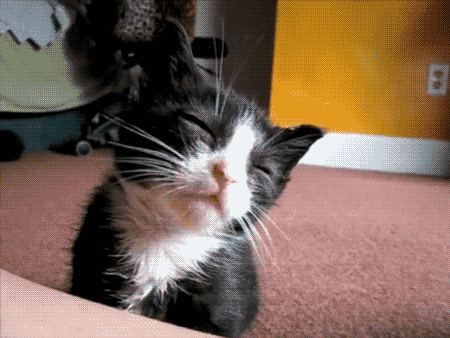
The past month has been filled with life-altering change. One I'll address later but the other (and both changes happened within a 24-hour period of each other) is that I am now a full-time college student. I'll be talking a lot about that, but in the meantime, until the new post is ready I thought I'd give you a few things to read.For my bookish readers, I must recommend two sites by my very dear friends and critique partners. (If you don't know what a critique partner is: they are the very special people who you somehow trust enough to read your precious, precious manuscript-in-progress and love it when they point out to you the crappy parts that need fixing.)PBookCrazy.com - Crazy about Picture Books
My friend Dawn is a picture book NUT, and will soon have her own manuscript gracing many an elementary students' shelves. Her writing is so full of energy, character, and heart that kids will love it as much as Mo Willems or even Dr. Seuss. This is her ode to her chosen medium.RMcCormackWrites.blogspot.com - Rhonda McCormack's author site You first met my friend Rhonda in my interview here. She is really getting some steam underway with the release of her YA mystery, Wildflowers. If you haven't stopped by her site yet, now's a good time, because she's having a giveaway! Check it out.And if you're new to my site, I thought I'd pull a few favorites from the archives:Focus, in which I discuss the useless information that may one day come in handy if you're ever on Jeopardy.
You first met my friend Rhonda in my interview here. She is really getting some steam underway with the release of her YA mystery, Wildflowers. If you haven't stopped by her site yet, now's a good time, because she's having a giveaway! Check it out.And if you're new to my site, I thought I'd pull a few favorites from the archives:Focus, in which I discuss the useless information that may one day come in handy if you're ever on Jeopardy.
Colicky Babies and Rookie Mistakes, in which I discuss horse colic, and show an embarrassing photo of myself, circa 1982.
What's in a Name? Part I, in which I correlate Brock Lesnar, Maddox Jolie-Pitt, the storybook Heidi, and a vintage perfume commercial.No, really. So, enjoy reading, and bear with me. I'll have something new soon.Thanks for stopping by.Heidi
So, enjoy reading, and bear with me. I'll have something new soon.Thanks for stopping by.Heidi
Why Do You Write?
I have been working on my book for FOUR YEARS. Four years. God, I hate to say it.
One of the first pieces of advice I received as a writer was, "don't tell anyone you're a writer," this person said, "unless you actually get paid for it."I thought this was a great idea, because as soon as you tell someone you're a writer, they start asking questions.
Wow. A writer? Really?
Well what kind of stuff do you write?
You've piqued their interest. They want to know more. You answer:
I have a blog and I write about my horses, my family, and writing. And I have a few articles published online.Oh.
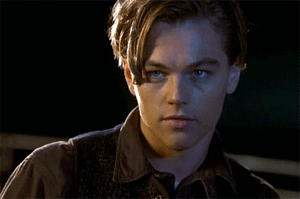 You realize they are unimpressed - you pull out the big guns. You confess:
You realize they are unimpressed - you pull out the big guns. You confess:
And...I'm working on a book.
Oh yeah, what's it about?
You tell them that it's a middle-grade fantasy adventure, set partly in this world and partly in a magical world.Their faces belie the thought going through their head: a children's book? So you decide, well, you've already lost them, why not keep going? You throw in:Oh, yeah, there's a Unicorn it it, too. And fairies.
So you decide, well, you've already lost them, why not keep going? You throw in:Oh, yeah, there's a Unicorn it it, too. And fairies. Then they give you that face, without even thinking of it. That Oh-my-god-did-she-just-say-she's writing-a-book-about-Unicorns?That face.The kind of face I have when my uncle talks about aliens.
Then they give you that face, without even thinking of it. That Oh-my-god-did-she-just-say-she's writing-a-book-about-Unicorns?That face.The kind of face I have when my uncle talks about aliens.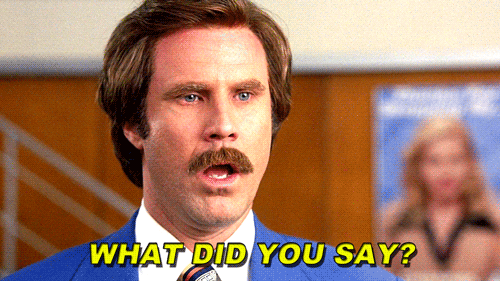 You've lost them, and now they are trying to think of ways to get out of the conversation. They nod, smile, wish you good luck, and they're on their way.Basically people aren't impressed with the fact that you write unless you make a living as a writer.Problem is, it's kind of a hard thing to get into. The ultimate Catch 22: You can't make a living as a writer without first writing for free (i.e., working on a manuscript before you can sell it), but while you are writing for free, you aren't really considered a "writer."It takes a lot of time and a lot of work, and if you aren't currently being paid for it, that means you are unemployed. OR, if you are employed, you are probably doing something like stocking magazines, or working in a laundry or waiting tables, or whatever, then coming home and taking care of your family, cooking dinner, doing laundry, driving kids to soccer practice, all the while daydreaming about what your characters are doing in that scene that you might be able to get to if you wake up an hour early tomorrow morning.
You've lost them, and now they are trying to think of ways to get out of the conversation. They nod, smile, wish you good luck, and they're on their way.Basically people aren't impressed with the fact that you write unless you make a living as a writer.Problem is, it's kind of a hard thing to get into. The ultimate Catch 22: You can't make a living as a writer without first writing for free (i.e., working on a manuscript before you can sell it), but while you are writing for free, you aren't really considered a "writer."It takes a lot of time and a lot of work, and if you aren't currently being paid for it, that means you are unemployed. OR, if you are employed, you are probably doing something like stocking magazines, or working in a laundry or waiting tables, or whatever, then coming home and taking care of your family, cooking dinner, doing laundry, driving kids to soccer practice, all the while daydreaming about what your characters are doing in that scene that you might be able to get to if you wake up an hour early tomorrow morning. But if you are lucky enough to quit your day job for a couple of months, others in your life will assume you have all this time on your hands because:
But if you are lucky enough to quit your day job for a couple of months, others in your life will assume you have all this time on your hands because:
You Don't Do Anything All Day.
And then, because you "don't work," you will get all of the extra side-chores to do, like getting that thingamabob fixed and calling the plumber and oh, yeah, can you (Fill in the Blank) for me??And then when you're not there they say to each other:
She calls herself a writer. She hasn't written anything!What she really needs to do is go get her hair done.Yeah, or update her wardrobe.Is she gaining weight?Are people even buying books anymore?
Or some such drivel. (It's not that you're paranoid, it's just you've heard them talk before. Or maybe you are paranoid. Either way.) Either way, I really didn't talk much about my writing, and then when I did, I let others make me feel ashamed for doing something so impractical.That was my mistake. Then for whatever reason, I just started owning it. I'm a writer. I write things. I hope to one day get paid for it, but for now I consider this as me building my resume.
Either way, I really didn't talk much about my writing, and then when I did, I let others make me feel ashamed for doing something so impractical.That was my mistake. Then for whatever reason, I just started owning it. I'm a writer. I write things. I hope to one day get paid for it, but for now I consider this as me building my resume.
And, yes, here's the horrible, shameful, awful truth:I have been working on my book for FOUR YEARS. Four years. God, I hate to say it. I'm truly embarrassed to admit it. I'm even thinking twice about revealing the truth as I type this. But I'm trying this new thing where I'm just open and honest. It's hard, because I'm so afraid of being judged--but I'm also sick of trying to make everyone on the planet happy except me.And, I like it when people are open and honest, even when it's horribly embarrassing. I LOVE this scene from Love Actually, and wish more people would be this candid:http://youtu.be/yVcieIZb3_UEverything else in my life, I have quit before I accomplished what I'd wanted to. And every time I think it would be easier if I just left this book in a drawer, I can't. I can't quit. I don't care if I don't finish it until I'm 85, I will keep writing this story until it's done. I don't even care if it's a piece of crap. Then I will just start revising.Do I think I'm writing the great American teen novel, and that I will have Rowlings-esque leagues of fans clamoring for autographs?No, But I do know that I'm following the 2nd piece of writing advice I ever got:
Write the book you wish existed.
I mean, somewhere along the line, someone had to tell Stephanie Meyers she was crazy for writing about young vampires in love.I would have read this book (my book, I mean) when I was in this place. The place between being a kid and being a teen. Ready for listening in on adult conversations, for making your own decisions, and ready for that first kiss. For adventure.But I like my magic a little more like the Renaissance Fair than Tales From the Crypt. I was scared to shit of Dracula when I was a kid. There's no way I would have read a book about vampires.
And I know there are tons of other readers out there who prefer their magic on the "happy" side. (Ever heard of Bronies??)And dude, seriously, when was the last time you heard someone say:
"I HATE UNICORNS!"You haven't, becauseEVERYONE LOVES UNICORNS.
http://giphy.com/embed/VRcgZakrc21ji?html5=trueWhen I finish my book I'll send NPH a signed copy. Hopefully he'll still be alive by then. Meanwhile, I will be working on my book (and going back to school, but more on that later).
Meanwhile, I will be working on my book (and going back to school, but more on that later). Some thoughts that keep me positive and motivated:
Some thoughts that keep me positive and motivated:
- It took JK Rowling 7 years to write Harry Potter.
- It took JRR Tolkien 12 years to write The Lord of the Rings.
- It took Jane Austen 16 years to write Pride and Prejudice.
Not that I'm comparing myself or my story to these fine people and their timeless books!It just makes me feel a little better.But that doesn't answer the question - why do I write?I can't help it. I get so many ideas in my head that if I didn't get them out, I think it would explode. That and the fact that I think everyone needs to hear what I have to say because I'm so farging brilliant. So here I am, slaving away, creating the miracle of literature, bestowing upon you the gift that is my genius.You're welcome. ---More Unicorn love HERE.So why is my book still unfinished? I went back to college.
---More Unicorn love HERE.So why is my book still unfinished? I went back to college.
Meet the Writer - Rhonda McCormack
an interview on the craft of writing and the changing landscape of publishing with debut YA author Rhonda McCormack
An author interview on the craft of writing, and on the changing landscape of publishing.
Featured Writer: Rhonda McCormack
Book: Wildflowers, Ecotopian mystery YA (more info below)
Buy it:
Intro, from Heidi:
I am very happy and proud to introduce you to my dear friend, Rhonda. The moment I met her, it was like flashing back to seventh grade, where you end up sitting next to someone at lunch just because they smiled at you and seemed nice and not bitchy (like those other girls) and you just become instant friends right then and there. Except it wasn't seventh grade, it was my very first grown-up writing event, our regional SCBWI conference. But still, I have the feeling that had she been eating PB &J for lunch, she'd have been happy to split it with me. Since then, Rhonda has been one of my most trusted critique partners, and just one of the many friends I've made through SCBWI. I'm planning an upcoming post extolling the virtues of attending a conference for newbies, but for now you can read this from last year.Rhonda's stories are varied but they all have that magical quality that every author strives for: a main character to whom everyone can relate. She speaks to the misunderstood, the ones trying to make a difference, and the ones hoping that someone will notice (or not!). She has one of the most dedicated work ethics I know, cranking out page after page, revising and editing to perfection. And usually, she's working on a few projects all at once and - oh, in her spare time (ha ha) she is an accomplished painter.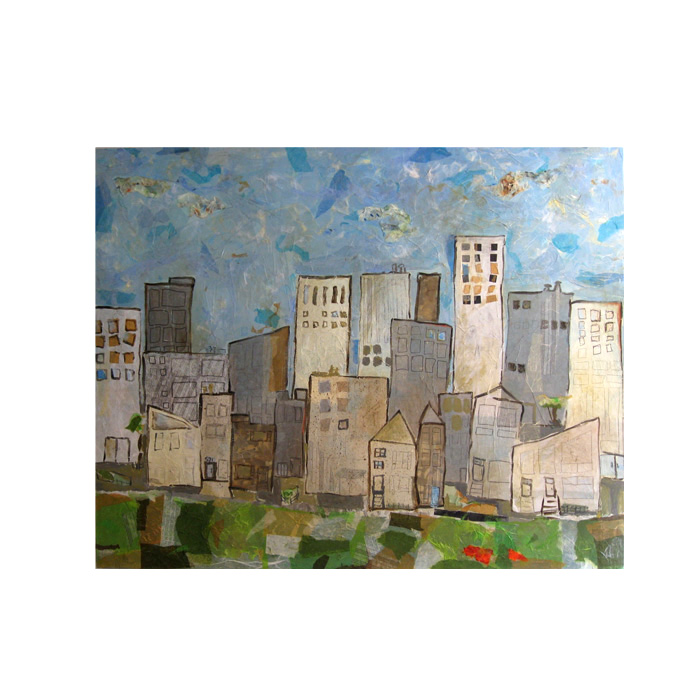 So to say Rhonda is a good influence on me is an understatement. She's the one who always pushes me to want to do better, a creative yin to my yang—or is it yang to my yin? At any rate, when you are a creative person, you soon realize that there are people in your life who are either vampires, those who suck out all of your creative energy and throw all sorts of negativity at you and make you feel bad; and then there are the sages and muses, those friends who inspire, support and help nurture the seeds of your creativity, and celebrate with you when it comes into bloom. I've gotten to that point in my life where I shut down the vampires and open up to the sages.The latest inspiring thing that Rhonda has done is to jump head-first into the world of self-publishing. Now, hang, on a minute, don't judge. Self-pubbing isn't what it used to be. In fact, just 4 short years ago when I first started this writing journey, the only people who self published were (for the most part) amateur writers looking to get their life story in print to hand down to their grandchildren. You would also see a lot of erotica and science fiction. And the problem with these types of books wasn't that the stories themselves were bad, but that they lacked the professionalism, the polish of a literary powerhouse team that you get when you have an agent, an editor, book designer and art director all working together to make the writer's piece really stand out, and be the best it can be. Not to mention the dollars behind a traditional publishing house that would go into marketing the book once finished.A lot of self-pubbed titles end up only being edited by the writer themselves, which we all know can be a HUGE mistake. The covers are done quickly with desktop software, and the end product ends up a bit...meh. Don't ever believe the line "You can't judge a book by its cover," because that is exactly the first thing that every reader does. But as Rhonda describes below, the self-pubbers of today would be nowhere without the writers before us paving the way.
So to say Rhonda is a good influence on me is an understatement. She's the one who always pushes me to want to do better, a creative yin to my yang—or is it yang to my yin? At any rate, when you are a creative person, you soon realize that there are people in your life who are either vampires, those who suck out all of your creative energy and throw all sorts of negativity at you and make you feel bad; and then there are the sages and muses, those friends who inspire, support and help nurture the seeds of your creativity, and celebrate with you when it comes into bloom. I've gotten to that point in my life where I shut down the vampires and open up to the sages.The latest inspiring thing that Rhonda has done is to jump head-first into the world of self-publishing. Now, hang, on a minute, don't judge. Self-pubbing isn't what it used to be. In fact, just 4 short years ago when I first started this writing journey, the only people who self published were (for the most part) amateur writers looking to get their life story in print to hand down to their grandchildren. You would also see a lot of erotica and science fiction. And the problem with these types of books wasn't that the stories themselves were bad, but that they lacked the professionalism, the polish of a literary powerhouse team that you get when you have an agent, an editor, book designer and art director all working together to make the writer's piece really stand out, and be the best it can be. Not to mention the dollars behind a traditional publishing house that would go into marketing the book once finished.A lot of self-pubbed titles end up only being edited by the writer themselves, which we all know can be a HUGE mistake. The covers are done quickly with desktop software, and the end product ends up a bit...meh. Don't ever believe the line "You can't judge a book by its cover," because that is exactly the first thing that every reader does. But as Rhonda describes below, the self-pubbers of today would be nowhere without the writers before us paving the way.
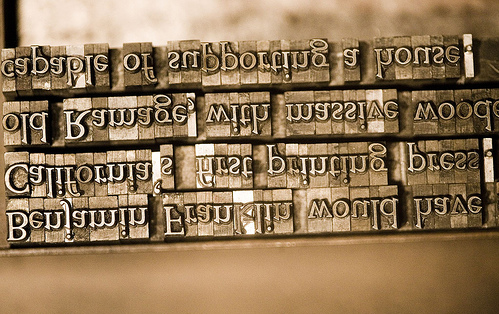
The landscape of publishing is changing, and fast. Now, done right, self-publishing can be the impetus to a successful writing career. Take my friend Anne Tibbets for example. She started out with a short fantasy novella, pumped it up on Smashwords, Goodreads, dozens of book blogs, and got some recognition for herself. When she was ready to send out her next book, she already had readers waiting for it, continued her forward momentum of readership and good reviews, and when she was ready to send out her next project, it got signed with an agent. It's all in how you present yourself, and it's a LOT about self-marketing. Even if you get signed with a traditional publisher, you will be expected to do your own share of marketing. And hopefully you will have an awesome friend like me who will feature you on their blog :DI am more than happy to be a cog in the marketing machine for Rhonda's debut YA novel, Wildflowers, especially having had a front-seat-view to its evolution. Wildflowers is the first of three books (unrelated) that Rhonda will be releasing under her publishing house, Row Press. She is currently working on her fourth book, a contemporary dystopian fantasy.
On craft:
-
How old were you when you started writing?
I was three when I started writing…in my head. I made up elaborate stories that I play-acted out with blocks and dolls and imaginary friends. Around age four I began to come up with tangible products. I started with greeting cards. They said things like: Get Well Soon. And, You Are Neat. Then, I wrote and illustratedThe Lonely Chrismas Tree, which was my first Indie published piece.
-
Where do you write?
Everywhere. In notebooks and journals and on a computer. On scraps of paper and in margins of books (ones I own, of course). But mostly, I write from the inside. Whole stories unfold in this crazy collaboration between my head and my heart. And when it comes time to get large chunks of a novel down, I take those words I've written "inside" and put pen to paper or fingers to keyboard to move ideas around.
-
When do you write?
I left teaching to write full time and putting together a writing schedule has been an interesting evolution. I've learned that, hands down, early morning is my favorite time to write. If I'm really engrossed or challenged, I'll stay hunched over a keyboard or notebook all day. This tends to lead to a stiff body (and hence a stiff mind), so I make myself knock off early. In the fall, I've noticed that I don't mind starting in the late afternoon, as the day cools and the light changes. Only with recent projects have I written into the evening hours. I'm not a night owl, and I'm always impressed when I hear about writers who write after a long day of doing other things.I think the Where and When Do You Write questions are important, and each writer must commit to understanding their creative voice's preferences. In knowing when and where our creative tap turns with ease and the words flow in steady rhythm, we make room for our art…and it responds in kind, making room for us. There will be messy moments, where creative flow can be untimely, arrive unannounced, and require the entire world to stop in order for us to find a spot a get the words out. If we honor all those moments the best we can and write where and when it feels good, our creative voice does seem to cooperate more on cue.
-
What helps you write—music, pictures, maps, journals, etc.—what gets you into that mindset?
Music and art definitely inspire me, and I find lots of interesting ideas come up when I'm traveling. I dream many of my stories, or parts of them. I also rely deeply on personal experience. I was lucky enough to grow up in a time when kids had more freedom to roam, and my childhood moments include both wonderfully awful and awfully wonderful people, places, and things. When it comes time to sit down and really do the work, though, I just need a clean work space, my imagination, and quiet.
-
What are some things that stand in your way? logistically as well as creatively?
For me, time and creativity seem to always be at odds with one another. I just read Full Catastrophe Living by Jon Kabat-Zinn and am slowly learning that time is not my issue. It's the awareness that I bring to a project that makes the clock disappear. Also, I tend to want to follow the rules, and for an artisan this can create some intense inner conflict. Truly, the answer to this question is that I stand in my own way, both logistically and creatively. Thanks for asking the question and making me nail down an answer. I may have just had an Ah-ha moment.
-
What do you do when you "hit a wall?"
Creatively, I rarely hit a wall. It's the physical stuff—like hunger, needing rest or exercise, or feeling unwell—that brings me to a halt. And being in the midst of a project I love can disconnect me from my physical needs. When this happens, my reaction is to the work itself. Meaning, I blame the work when I feel stuck or misguided, and I may even begin to loathe what I'm writing or painting. When I get to this place, I know it's my inner-critic playing this weird game of criticizing my ideas in order to protect the physical me. We're always told to dismiss, ignore, and shun the inner critic, when really it can send us important messages. And if I get the message that I've hit the wall, I know I need to move. I mean this literally and figuratively. Getting away from the project, taking a walk and changing the scenery can make a big difference. But sometimes I need to move to a new state-of-mind, or move my emotions with some journaling, or move my attention to other needs.
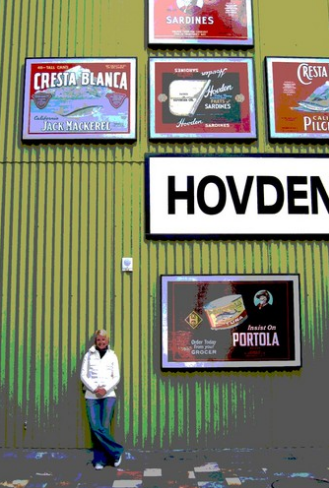
-
Do you use an outline—do you know exactly how the arc will play out—or do you just let the story develop as you write? If so, how do you outline? (notecards, etc.)
Outlining? What's that? I kid, of course. I know what outlining is, I just don't do it in a traditional way. As I've mentioned, I write in my head and have a strong ability to hold onto an entire storyline before anything gets written down. But the written bits eventually end up in a pile, and like a puzzle, I begin to lay out and fit together the pieces of paper that have the ideas on them. Spread out on the desk, I move the written parts down and begin to type up a somewhat structured piece. Some people use a big bulletin board with index cards (old school is cool) or a software program like Scrivener, which I hear is pretty cool (too).Here's the funny thing about that structured-piece-serving-as-outline: For me, it almost becomes irrelevant as I write because in their natural setting the characters take over the plot. The characters' stories just unwind themselves onto the page. Still, there comes a time with almost every novel when I print out the entire work and physically cut it to pieces, and again, reassemble it like a puzzle. I'm very tactile and visual, and I can "see" the story better this way. I can feel the pacing, recognize the missteps and holes, and because this process is done early in the revision stage, it becomes more of an outline than that original, non-traditional one. Big things happen at this point. And it gives me a powerful second wind.
-
How do you draft/revise? (i.e. do you just get it out in one big "dump," then revise, revise revise, or do you revise and edit as you go)
I'll admit that I've taught myself a big lesson in regards to how I draft the initial manuscript. I spent many years editing as I went along because…I'm a perfectionist. The thing is, Anne Lamott was right about the beauty in allowing the original draft to be The Shitty First Draft. Something happens in that SFD; all the tangents and bizarre ideas and general garbage are released and processed, but a momentum is also built, for the story, the characters, and amazing, random concepts can be revealed in that draft. This idea of "dumping" is behind Julia Cameron's prescription for morning pages in The Artist's Way and the Propreoceptive Writing Method (Writing the Mind Alive by Linda Trichter Metcalf and Tobin Simon), but it can be extended to the first draft. Without the SFD, which is essentially an information dump, editing had me caught in a cycle of distraction. I was bound and restricted to catching every mistake and nuance, and I constantly wanted to go back and rewrite. Or research. It would take months to get a few chapters tightened up. And to what end? Most of those beginning chapters would need revision once I could see the scope of the entire story, which could only happen with A FULL, FINISHED DRAFT. I (slowly) came to realize that my creative self is most happy when I make every minute valuable, and non-precision is the key…at least at first. There's plenty of time for perfection later in the process, but up front, I gotta write my SFD.
-
What are some tools that you use?
The Synonym Finder, Chicago Manual of Style, Woe Is I, Google, a dictionary, fresh air and space to think.
-
Do you use critique groups? How did you find them?
One-on-one or small group critique works best for me. I've got a handful of trusted (honest, thoughtful, knowledgeable) people I turn to, including a professional editor who came from traditional publishing. Critique groups can be found through local libraries, writing organizations, like SCBWI, and at conferences. Critique is important and can be fun, though it may take a few tries to find out what format works best for you. Ask around, sit in on meetings, and then go for it. Trading one chapter to start and building up until you and your partner(s) know you're a good fit. I'll mention that self-critique is valuable, too. Reading work out loud is one of the best ways to catch grammar AND content issues.
On your current project:
-
What was your inspiration for this book?
Wildflowers was inspired by a dream. In fact, I dreamt many parts of chapters 21 and 23. As more of the story revealed itself to me, I was inspired by those who survived and helped during and after Hurricane Katrina, by the environmental awareness movement, by the desert. Also, years ago, I had written a picture book that I thought would make an adventurous scene in a novel, and the brother and sister team in that story became a natural fit for the characters in the young adult novel. Grown-up, of course. From there, I was inspired by all the people (kids and adults) I've met who adapt and grow, and in spite of tough times or choices, find and live their truth.
-
Wildflowers is described as an "Ecotopian" mystery. Can you elaborate on that?
Dystopian is a popular genre these days, and it describes a fictional place where the population lives in fear and feels dehumanized, often by the rules of an larger authority, class, or government. Think Hunger Games. When I first began submitting Wildflowers, I knew labeling it dystopian wouldn't capture the hybrid elements of the book. It's a mix of the environmental disaster, futuristic, coming of age, and mystery genres. So I came up with the term "ecotopian". After adding the "mystery" tag, I received positive feedback about the label from editors and agents, who felt it was an accurate representation of the work. The Lawrence, Kansas Library recently put out a great flow chart to show the diversity in dystopian titles. Click the picture to see it:
-
What kind of research did you do for this book? And, were you surprised by something that you learned in your research?
I researched environmental disasters and technologies relating to earth, air, and water. I also researched horticulture, desert plants, maps of the West, dystopian and, what I call ecotopian novels. What surprised me was how I had to keep reminding myself that the book was fiction. At times, with the data I'd collected, it felt like I had to include every possibility of what could happen with natural disasters and climate change. In order to maintain the entertainment value of the story, it became more important to be mostly-accurate. I took inspiration from how the environment works. It's a big cycle, where one thing is connected to another in such a way that it becomes a whole. Interestingly, this same thing came up with the mystery elements and how they influenced character development. It shouldn't have, but it surprised me how much writing I had to do to have the characters evolve with the clues and discoveries. This was the only way to create one whole unit of story. In fiction, we ask the reader for space to suspend belief, but in exchange, we must deliver on our promise to describe a believable moment in time.
-
This is one of the most beautiful covers I've seen, especially for a self published title. Can you describe how it came to be?
Thank you! As an artist, I wanted to be involved with the entire creation of the book. I use collage in most of my large pieces, and I just had a gut feeling that that same technique would work for the cover. Once I put together the first sample to send to my graphic designer and critique partners, I knew it was "right". It took me a few hours to resource and create a design for the front, spine, and back. Using my own photographs of local desert wildflowers and piecing together many photos of family members to get the silhouettes at the right maturity level, I finally got a working copy. It took several weeks and lots of back and forth with the designer (thanks Firehed) to get the colors, textures, layout, and fonts correct. For my first go at it, I feel good about the results. To see how far it came, here's the initial sample created for the front:
On the business of publishing:
-
How has self-publishing shaped your career as a writer? OR What is your opinion of self-publishing?
It's an amazing time for publishing of all kinds, and I think there's room for everyone. For me, dedication to craft is the most important tool to take with you into the self-publishing world. The stigma attached to self-publishing has always been about one question: Is it well-crafted? In the beginning, when folks had a vision to see their words in print, but were turned down in the traditional publishing marketplace, few knew (or accepted) the value of critique, editing, formatting, or design. There was a level of professionalism missing from many of the self-published titles. But here's the thing, why squash creative expression? In fact, those not-so-professional books paved the way for more knowledge, better printing options, and on the backs of the early self-publishing pioneers, the self-publishing marketplace was carried and made into the Indie market of today. Independent or Indie publishing is when one or more author-publishers self-publish a title, and it's become like the Indie film community. It's become a place for unique voices, ideas, artistic expression, niche topics, and man, there's a lot of freedom out here. With that comes some responsibility, I think.
Indie authors need to look at their work like art and take time to polish all aspects of the work, learning from mistakes and honoring the time it takes to present a beautiful, fun, value-added product. The exciting thing is, we're seeing traditionally published authors creating projects just for this market, and we're seeing Indie authors who are willing to cross over and publish traditionally. It's a craft bonanza, and writers, illustrators, and even industry professionals are feeling empowered by the creative possibilities. It's likely we'll see many twists and turns in both marketplaces, but what we know for sure is that The Big Six are jumping in the game by putting their smaller acquisitions and out-of-print titles for sale in the eBook market, and there are many new, boutique publishing houses and agencies offering to support and work with Indie authors whose titles are print-on-demand (POD) and/or eBooks. I've also heard that there's a green movement to create less hard-cover and mass produced books in the future. Instead, most new releases would be POD. The draw is financial as well as environmental for the big, traditional houses. Whatever the case, it's a fascinating time to be a writer…and a reader.
-
What can you share with our readers about marketing?
Over and over again, I've heard the same thing about marketing, and now that I'm embarking on a marketing tour of my own, I believe it to be true. All that matters is word of mouth. Do anything and everything to generate talk about your book and you'll know you've done all you could.
-
Can you tell us the story behind your publishing name, Row Press?
Leaving the path toward traditional publishing happened quickly for me, but I still had mixed emotions about self-publishing and all things Indie. And it hadn't occurred to me that I may want to designate myself as an author-publisher, and not just an author. I learned about this from Kris Tualla's book Becoming an Authorpreneur, and for me, it was simply a way to honor the entire creative endeavor. When it came time to name my new, little press, I remembered a moment with a vintage friend in Seattle. We were out at a flea market and came upon this amazing vendor who sold parts and bits from bigger mechanisms and products. Watch faces, game pieces, and…type writer keys. When we found the keys labeled "Row" and "Storm", my friend scooped them up as inspirational reminders. "When things get stormy, just keep rowing," she said. A year or so later, when the waters in my life had gotten a bit rough, she sent me those keys to cheer me on. Since then, I've learned the importance of keeping my creative boat afloat.
-
What other social media tools have you used to help the reader experience Wildflowers?
Social media is a complex entity, and my advice for anyone is to use only those outlets that call to you creatively. I've picked Twitter, Pinterest, and iTunes to do some world building with Wildflowers. Twitter isn't about mass self-promotion, but it is a fun way to share information that speaks to my interests as an author and artist as well as supports the themes and topics in my books. As for Pinterest, I love it as a place to do some visual storytelling. I love what others do with their boards, and I find Pinterest to be artistic in a way that other sites haven't mastered. As an author, I can create a whole new view into my novels there. I also wanted to create a soundtrack for my books, so I turned to iTunes as the place to share the songs that inspire certain scenes or the feelings in a scene. I don't write with music playing, but it does provide inspiration when I'm brainstorming concepts. I guess my goal is to give the reader a complete experience. (links below)
About You:
-
What is a trick that you've learned along the way that has made the writing process easier?
No tricks. Just be dedicated to the craft and follow the unique spirit of your story.
-
What writers inspire you?
Marilynne Robinson with Housekeeping. Kathi Appelt with The Underneath. Lois Lowry with Anastasia Krupnik. Lane Smith with It's a Book. There's more…so many more.
-
We all know that learning from our mistakes is part of the process of becoming who we are. As a writer, what's one lesson you've learned that you would like to pass on to others?
Deserves repeating: Just be dedicated to the craft and follow the unique spirit of your story.
-
What's next for you?
I'm releasing Roll, a young adult novel (for any aged reader), in the first quarter of 2013, and I'm collaborating on a non-fiction wellness/inspirational title that will be traditionally published. It's due out in Fall 2013 or Winter 2014.And...
-
What's the funniest thing you've seen or heard online lately?
Voice mail accident hilarious: http://www.funnieststuff.net/viewmovie.php?id=2998
- Thanks, Rhonda! That really was funny!
Find Rhonda online:
- R McCormack Writes
- Small Yellow Songbird (a wellness blog)
- Twitter @rmackwrites
- Wildflowers playlist on iTunes
Wildflowers:
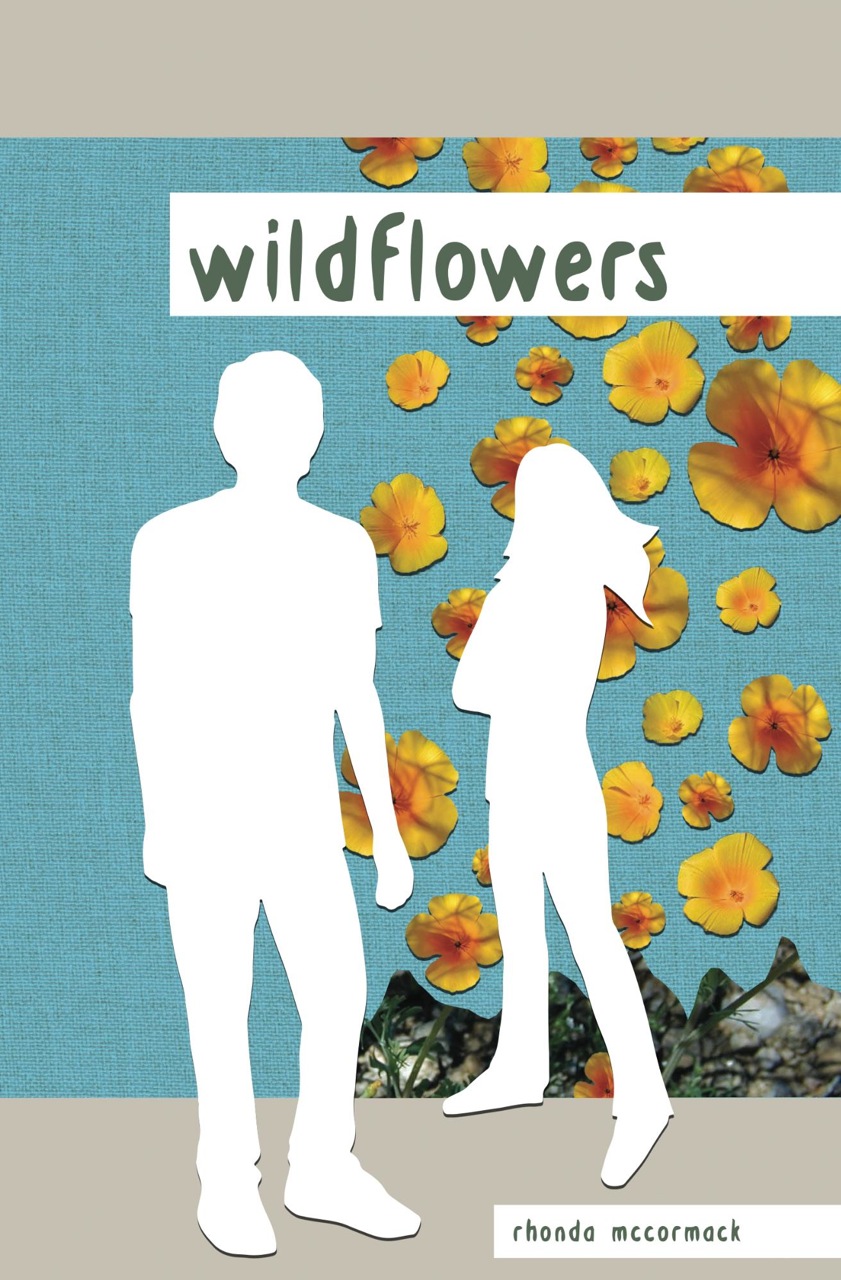 In the three years since Keifer and Abi Michaels were evacuated from their desert home, the world has been ever-changing, and they don’t agree on the details of the past. But when Keifer uncovers a confusing family secret, Abi is his only ally. Now, they must sneak into the Restricted Zone and navigate a maze of clues in order to unravel the truth. The journey will transform them…and the entire western landscape.Thanks for reading! Please feel free to comment below.
In the three years since Keifer and Abi Michaels were evacuated from their desert home, the world has been ever-changing, and they don’t agree on the details of the past. But when Keifer uncovers a confusing family secret, Abi is his only ally. Now, they must sneak into the Restricted Zone and navigate a maze of clues in order to unravel the truth. The journey will transform them…and the entire western landscape.Thanks for reading! Please feel free to comment below.
Sample Chapter - RUBY AND THE UNICORN
Ruby knew when her dad said “end of discussion,” that was the end of the discussion.
Because I have a few half-completed blog posts fluttering around on my Blogger dashboard, and I am uninspired to finish any of them at the moment, and because it's been awhile since I've tempted you with a bit of my novel-in-the-works, and because I'm lazy, I'm giving you another peek into Ruby's world.I hope you like it.
Ruby pedaled, her boots wobbling double-time as she raced the clouds home. Big splots of water hit her head, and the downpour let loose just as she rode into the driveway, soaking her before she pulled into the open garage. An old blue pickup stood there, the hood agape. Ruby’s father, Dominic Fortuna, leaned over, a work light in one hand and the other reaching into the greasy depths of the engine.“Dad!” Ruby shouted, excited and out of breath.Dominic, surprised by the clamor, jerked his head up and hit it on the hood.“Ouch! Oh, hey, kiddo, come give me a hand, wouldya? Here, hold this light.” He looked at her, noticing her fat lip. “What’d ya do, crash your bike?”Ruby shrugged.“You alright?”“Yeah, I’m fine.”Ruby grabbed an old towel off his workbench and wiped the rain from her arms. Stepping on a stool, she took the light and held it above the engine. Her dad still wore his grungy work clothes, sleeves rolled up, and he smelled of machine oil and metal filings. She leaned over and sniffed.“What’s the matter?” He asked, “I smell?”“Nah,” she said, “I like it.”“Hmmph. You’re the only one. Your mother says I stink.”“Well, you do, kinda, but not in a bad way. You just smell like you.”He laughed, “Thanks, kid.”“Dad?”He had both hands somewhere under the air filter and struggled to loosen a bolt. “Yeah?”Ruby hesitated. It was one of those moments where she would usually chew on her lip, pondering the right way to say something she probably shouldn't. But this time she just felt the fat swollen lip and tasted the fresh wound. She’d raised this question a thousand times before, and it never went over very well.“Are you sure we can’t have a horse?” She closed her eyes and held her breath, bracing for the answer.He exhaled in exasperation, and gave the response he’d given every other time he was asked, “Yes, Rube, I’m sure.”“But Dad,” Ruby complained, “I just saw the most beautiful horse I’ve ever seen! Anyone’s ever seen! She’s from Ireland, and she belonged to some crazy Gypsy aunt of Molly’s, and Molly doesn’t want to keep her, and she has long white hair and these beautiful blue eyes and she’s perfect!”“No, Ruby.” Was all her dad said.“She looks like a Unicorn!”Dominic wiped his hands on an old oily rag and took the light from Ruby. “I don’t care if it looks like the Queen of England, it’s a horse, and we’re not having any horses here. Period. Not your grandfather’s horse, not Molly’s horse, not any other horse you see on any given day. Now stop bugging me about horses. We don’t got the time, the money, or the room for a horse.” He wiped his brow, and closed the hood of the truck.“End of discussion.”That was that. Ruby knew when her dad said “end of discussion,” that was the end of the discussion.She scowled at him and stomped into the house.



